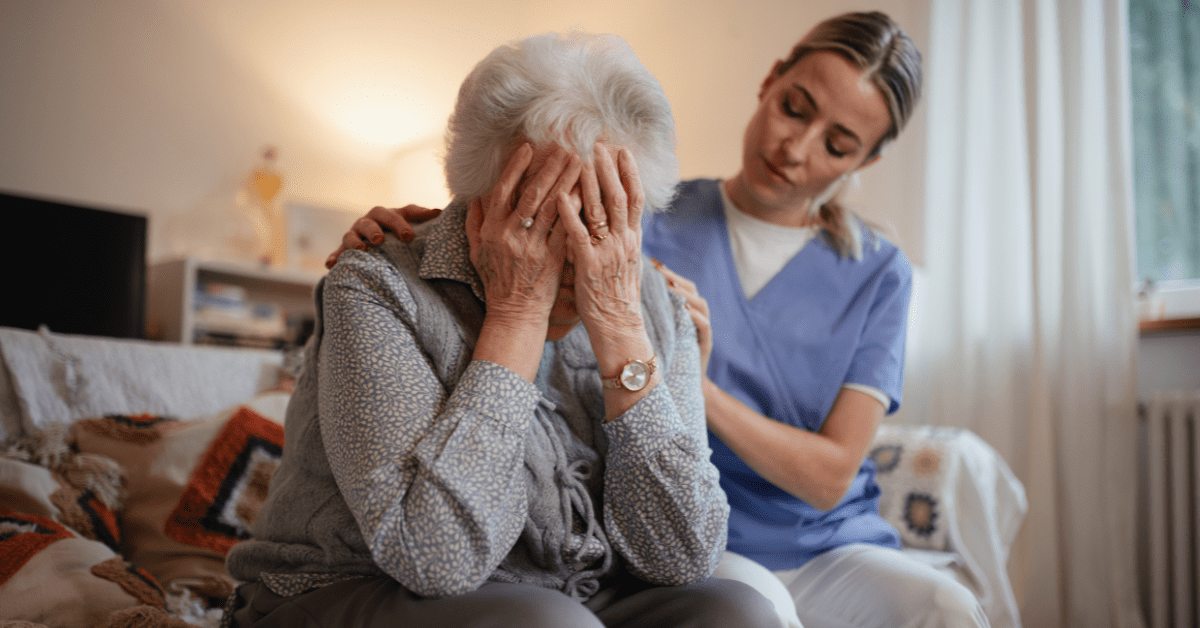
When we talk about senior care, mental wellness often takes a backseat to physical health concerns. Yet the reality tells a different story. The emotional struggles residents face in assisted living services in Wisconsin and nationwide run deeper than many realize. Understanding these challenges becomes the first step toward creating spaces where seniors can find genuine emotional support and connection.
Mental Health Challenges in Assisted Living
Many residents in assisted living services throughout Wisconsin and nationwide experience depression or severe anxiety symptoms. Add to this the nearly 42% who navigate dementia-related challenges and you begin to see why emotional well-being deserves our careful attention.
How loneliness and isolation affect residents
For numerous seniors, loneliness is a constant, daily struggle. Real people sitting alone in their rooms, missing the connections that once filled their days. The health toll is devastating:
- Depression and anxiety rates climb
- Blood pressure rises while the immune systems weaken
- Cognitive decline accelerates, increasing dementia risk
- Overall mortality risk increases
Residents with shrinking social circles often become increasingly dependent on staff for basic human interaction, which can create a cycle of isolation. The move to assisted living itself brings profound loss—familiar neighborhoods, longtime neighbors and the comfort of home. These losses accumulate, weighing heavily on residents already struggling with health changes and reduced independence.
Physical activity triggers endorphin release, nature’s own antidepressant. When exercise happens in groups, residents gain both biochemical mood boosters and social connection. This powerful combination enhances the promotion of senior emotional health through well-designed assisted-living mental health programs.
Enhancing Resident Mental Health
The panorama of mental health care in assisted living services is evolving in ways that would have seemed impossible just a few years ago. Communities are stepping away from one-size-fits-all approaches, embracing tools that meet residents where they are emotionally and physically.
Use of technology in mental health monitoring
Think of technology as a gentle companion that keeps watch when human eyes can’t. Remote patient monitoring allows healthcare providers to stay connected with residents’ mental health status without the stress and disruption of constant appointments. These systems quietly track vital signs, medication patterns and subtle behavioral shifts that might signal emotional distress.
Wearable devices have become particularly valuable allies:
- Heart rate and sleep changes that whisper early warnings of anxiety or depression
- Activity patterns that reveal mood fluctuations before they become overwhelming
- Real-time notifications that prompt timely intervention
This technology proves especially meaningful for residents who struggle with mobility limitations or find it difficult to express what they’re experiencing emotionally.
Integrating mindfulness and relaxation techniques
Mindfulness practices offer residents something precious: tools they can use themselves to find calm in difficult moments. Research confirms what many seniors instinctively understand—that these techniques can ease anxiety, lift depression and help manage both emotional and physical pain. The beauty lies in how naturally these practices align with the wisdom many older adults have already developed about managing their emotions.
Simple relaxation methods like focused breathing and progressive muscle relaxation create measurable improvements in daily life. Autogenic training, which guides people through mental exercises for relaxation, has shown particular promise for older adults.
Prioritizing Mental Wellness
Mental health support within assisted living services in Wisconsin stands as a cornerstone of quality senior care. We’ve walked through the realities of depression, anxiety and cognitive challenges that touch so many residents’ lives, often without the recognition or treatment they deserve. Yet what emerges from this landscape is not discouragement, but genuine opportunity for meaningful change.
What gives us real hope is watching how communities are stepping up to this challenge. Smart monitoring systems catch changes early and evidence-based programs provide structure and support.
Most importantly, there’s a growing recognition that emotional and mental health is as vital as physical health and deserves the same careful attention.
Families ready to explore senior care options that prioritize mental wellness can connect with experienced providers who understand these needs. Call (844) 658-4475 and ask about the different locations of our Heritage Senior Living communities to discover environments truly dedicated to promoting senior emotional health.
FAQs
Q1. How does assisted living support mental health in seniors?
Assisted living communities offer various strategies to support mental wellness, including structured daily routines, group activities to reduce isolation, access to therapy and counseling services and encouragement of physical activity. These approaches help promote emotional stability and combat common mental health challenges faced by seniors.
Q2. How can families support their loved ones’ mental health in assisted living?
Families can support their loved ones by communicating, participating in care planning meetings, bringing familiar items from home, encouraging participation in group activities and advocating for regular mental health assessments. Consistent involvement helps create a strong support system for residents.
Q3. What innovative approaches are being used to enhance mental health in assisted living?
Innovative approaches include the use of technology for mental health monitoring, such as wearable devices and remote patient monitoring systems. Additionally, successful programs like on-site psychological care and integrated mindfulness and relaxation techniques are being implemented to support residents’ mental wellness.


